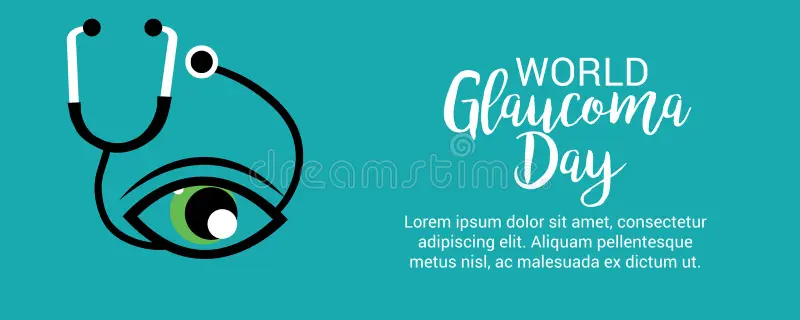Glaucoma Day is a special day which is celebrated across the world to spread awareness about this serious eye disease. Glaucoma is a silent thief of sight disease which steals the light of the eyes slowly and without any visible symptoms. If it is not treated timely, it can also become the reason for permanent blindness.
Every year World Glaucoma Day is celebrated on 6 March in which people are made aware about prevention of this disease and correct treatment. Come, in this blog we will explain in detail about the causes, symptoms, treatment of glaucoma and ways to increase awareness about it.

What is World Glaucoma Day?
Glaucoma is a chronic eye disease that damages the optic nerve of the eyes. The optic nerve carries light from the eyes to the brain. When it starts to get damaged, vision gradually becomes blurred. Glaucoma is mostly seen in people whose eye pressure (Intraocular Pressure – IOP) is high.
One of the biggest problems of this disease is that it is not detected in the early stages. By the time the patient realises, 90% of the damage has already occurred. Hence, it is very important to get regular eye check-ups done.
Main causes of glaucoma
There can be many reasons behind the occurrence of glaucoma Some of the main reasons are.
Genetic reasons
If someone in your family has glaucoma, then your risk of getting this disease also increases.
High pressure of the eyes
When the fluid (aqueous humor) of the eyes does not drain properly, the intraocular pressure increases, which can damage the optic nerve.
Diabetes and High Blood Pressure
People with diabetes and high blood pressure are more likely to get glaucoma.
Injury or surgery on the eyes
If the eyes are injured or have undergone any surgery due to any reason, the risk of glaucoma increases.
Long-term use of steroid medicine
If you are using steroid-based eye drops or medicines excessively, the chances of getting glaucoma can increase.
The main symptoms of glaucoma
Glaucoma is not detected in its initial stage, but as it becomes severe, some symptoms start appearing.
- Gradually loss of vision
- Decrease in peripheral vision (vision around edges)
- Loss of vision at night
- Pain and redness in the eyes
- Headache and feeling of tension in the eyes
- Seeing rings (halos) around light
If you feel any of these symptoms, contact an eye specialist immediately
Types of Glaucoma
Glaucoma is mainly of two typesh
Open-Angle Glaucoma
- This is the most common glaucoma that develops slowly.
- No symptoms are visible initially, but gradually vision starts to deteriorate.
- This happens due to increased pressure inside the eyes.
No symptoms are visible initially, but gradually vision starts to deteriorate.
Angle-Closure Glaucoma
- This is an emergency condition that starts suddenly.
- There is sharp pain in the eyes and without treatment, blindness can occur in some parts.
- In this, the pressure of the eyes suddenly increases.
Treatment of Glaucoma
There is no complete cure for glaucoma, but if it is caught early, vision can be saved. Some treatments are.
Eye Drops
Eye drops reduce intraocular pressure. This is the most common treatment prescribed by the doctor.
Laser Therapy
When eye drops are not effective, laser therapy is used in which fluid drainage is improved.
Surgery
If glaucoma has reached a severe stage, trabeculectomy surgery is done in which a new fluid drainage system is created.
Importance of Glaucoma Day
The objective of Glaucoma Day is to make people aware of this eye disease so that people can get timely check-ups done and avoid this disease.
What should be done on Glaucoma Day?
- Get your eyes tested – Get your eyes checked once every year
- Adopt a healthy lifestyle – Keep diabetes and BP under control
- Spread information – Make people aware through social media and family members
- Keep your eyes safe – Do not use mobile and screen excessively, wear safe eyewear
Conclusion
Glaucoma is a silent blindness disease that can steal the vision of the eyes without any warning. The importance of Glaucoma Day is to increase this awareness so that people can get check-ups done on time and avoid blindness.
